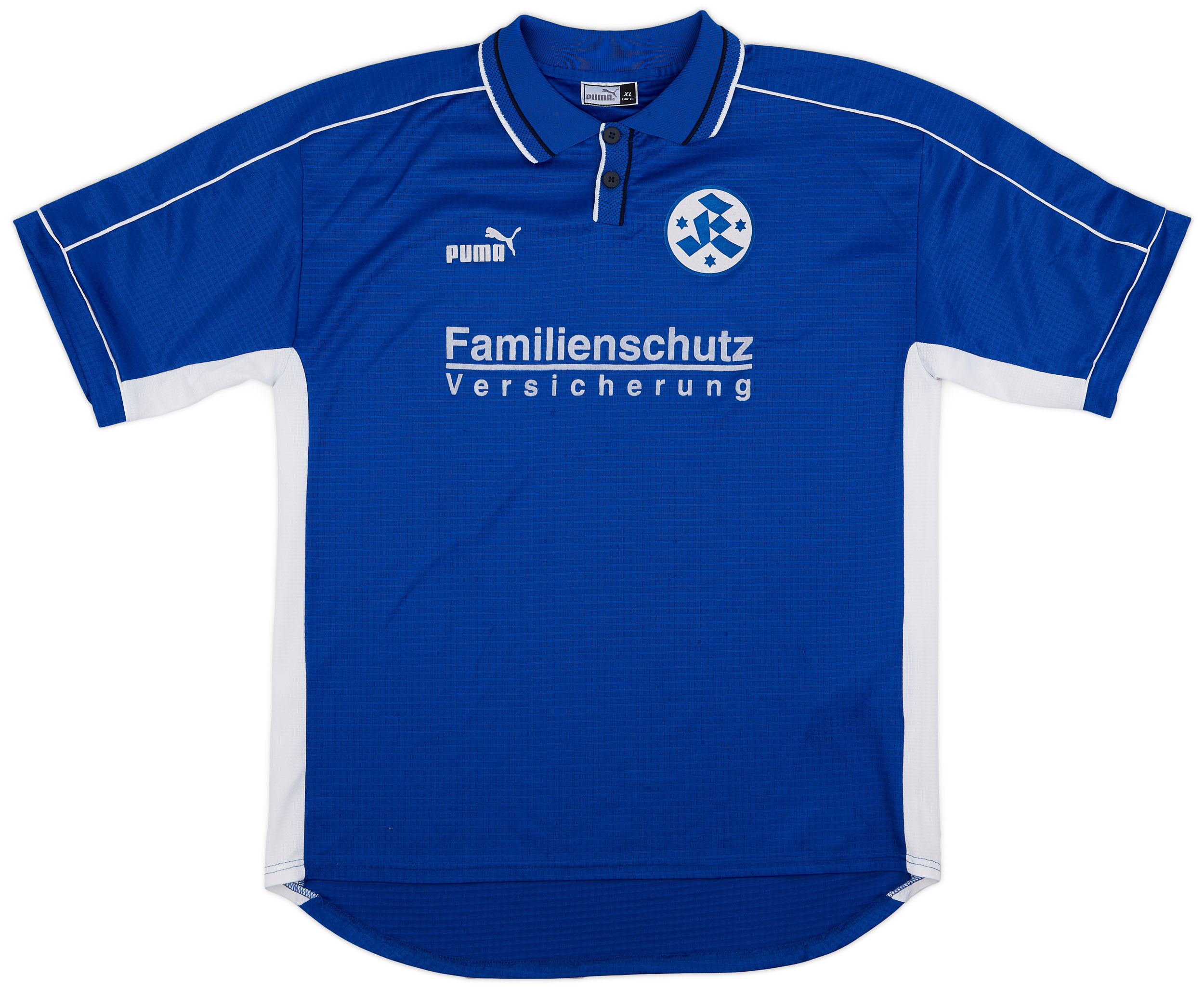Stuttgarter Kickers
Introduction The Stuttgarter Kickers, established in 1899, is a distinguished football club located in Stuttgart, Germany. Often referred to as “Die Blauen” (The Blues) due to their iconic blue kits, the club boasts a rich history that intertwines with the evolution of German football. Over the years, the Stuttgarter Kickers have developed a strong identity, […]
1997-98 Stuttgarter Kickers Home Shirt - 8/10 - (XL)
148.99£ - ca: €176
2000-01 Stuttgarter Kickers Home Shirt - 8/10 - (XL)
106.99£ - ca: €126
1994-95 Stuttgarter Kickers Away Shirt #77 - 4/10 - (XL)
35.99£ - ca: €42
Introduction
The Stuttgarter Kickers, established in 1899, is a distinguished football club located in Stuttgart, Germany. Often referred to as “Die Blauen” (The Blues) due to their iconic blue kits, the club boasts a rich history that intertwines with the evolution of German football. Over the years, the Stuttgarter Kickers have developed a strong identity, not only as a competitive football club but also as a community hub that represents the passionate spirit of Stuttgart’s residents. This article outlines the club’s remarkable journey through time, highlighting its achievements, significant players, cultural impact, and enduring legacy.
Club History
The Stuttgarter Kickers were founded on 1st September 1899, making them one of the oldest football clubs in Germany. The club’s early years were marked by participation in regional competitions, but it soon joined the Southern German football association, where it gained prominence. The club’s first major breakthrough came in the 1920s, when it became a founding member of the Oberliga Süd, the highest division of Southern German football at the time.
Throughout the 1940s and 1950s, the Stuttgarter Kickers faced numerous challenges, including the destruction of their stadium during World War II. Nevertheless, they persevered and experienced several notable successes in the post-war era. The club’s remarkable ascent continued into the 1980s, where they solidified themselves in the second-tier Bundesliga 2. However, the most significant moment in their history came in 1992, when they reached the DFB-Pokal final, showcasing their competitive spirit on a national stage.
Achievements
The Stuttgarter Kickers’ trophy cabinet reflects a rich heritage of success at various levels of German football. The club achieved its first major honor by winning the Southern German Championship in 1911. However, their crowning achievement came in 1950, when they were declared champions of the Oberliga Süd. This victory marked their status as one of Germany’s prominent clubs during that era.
Another highlight in the club’s history was the aforementioned DFB-Pokal final in 1992, where they faced off against the mighty Hannover 96. Although the Kickers were ultimately runners-up, their journey to the final comprised thrilling victories against other formidable teams, leaving an indelible mark on the club’s legacy. In recent years, the Stuttgarter Kickers have continued to compete in the lower divisions of German football, while striving to reclaim their place in the Bundesliga.
Significant Players and Matches
Matches that resonate with fans include the thrilling encounters against rivals like VfB Stuttgart, where the rivalry intensified and showcased the passionate local football culture. The 1991 quarter-finals of the DFB-Pokal, in which the Kickers defeated Werder Bremen, is remembered as a monumental achievement, further solidifying the club’s stature as a formidable competitor.
Cultural Impact
The Stuttgarter Kickers have a profound cultural significance in the Stuttgart region, fostering a strong sense of identity and community among their supporters. The club’s fans exhibit unwavering loyalty, often filling the Gazi-Stadion am Wasen to support their team on match days. Local youths are inspired by the club’s history and its commitment to nurturing talent through youth academies.
The Stuttgarter Kickers’ influence extends beyond the pitch, as they actively engage with the community through various social initiatives. These efforts aim to promote social inclusivity and encourage physical activity among the youth in Stuttgart. This community-oriented approach has fortified the club’s ties with its supporters, fostering a deep-rooted affection for the Stuttgarter Kickers that transcends generations.
Conclusion
In summary, the Stuttgarter Kickers hold an esteemed place in the annals of German football history. Their long-standing traditions, significant achievements, and unwavering fan support contribute to their identity as a club that honors the past while looking toward the future. As they continue to navigate the challenges of the modern football landscape, the Stuttgarter Kickers represent not only a history of competitive spirit but also a beacon of community pride in Stuttgart. Their journey, marked by resilience and passion, illustrates the importance of football in shaping local culture, making the Stuttgarter Kickers a cherished and historic establishment in the footballing world.


